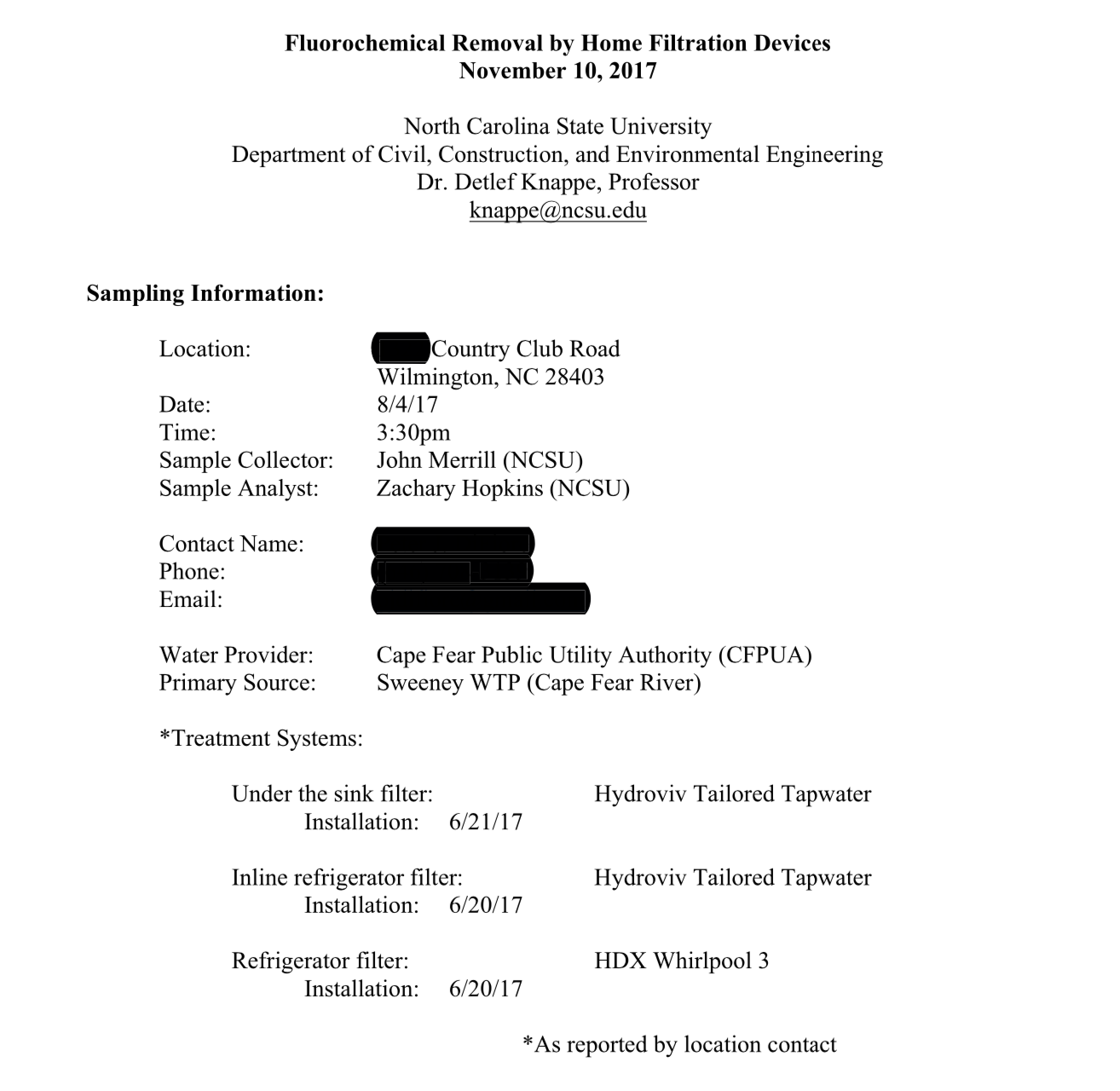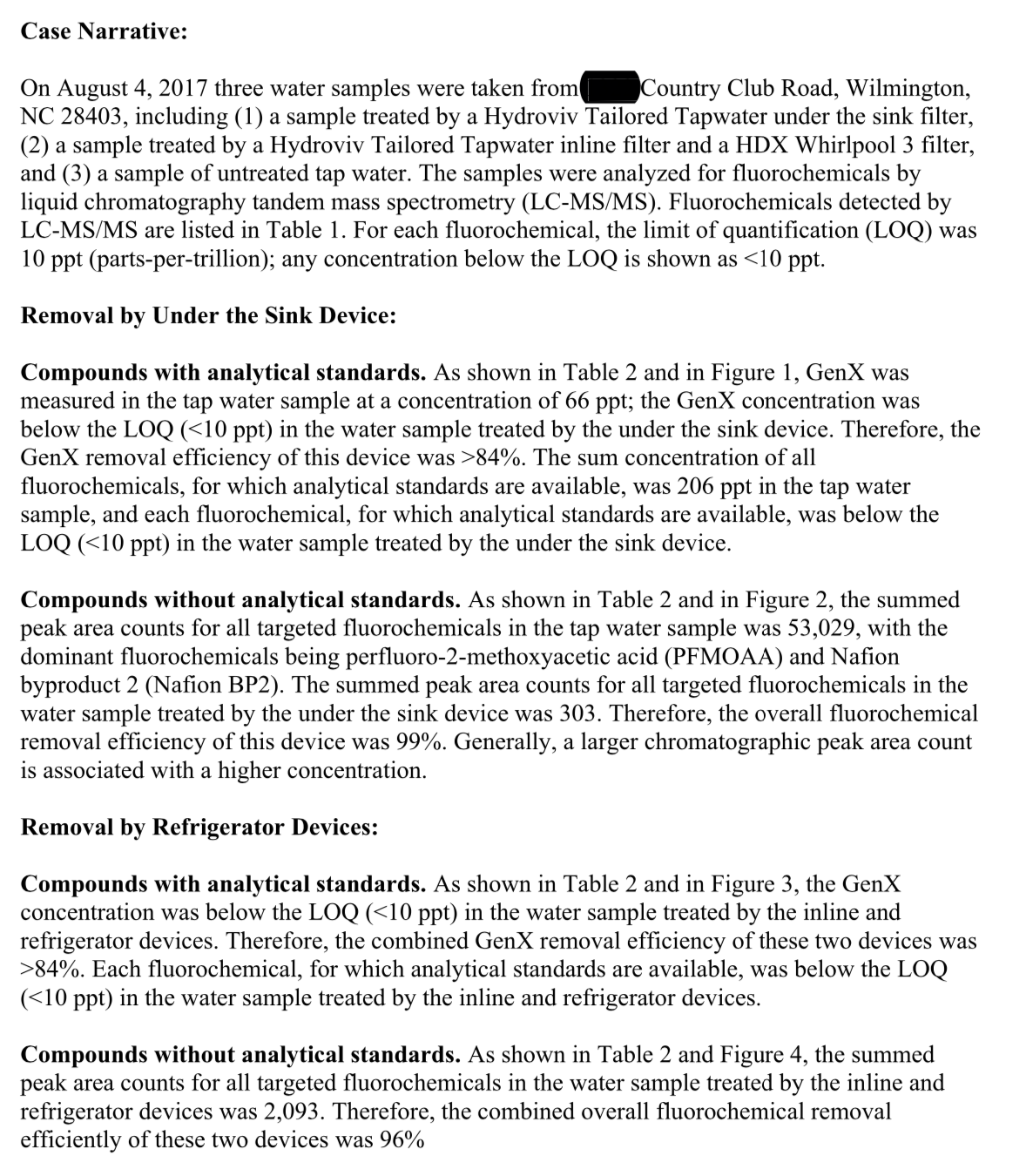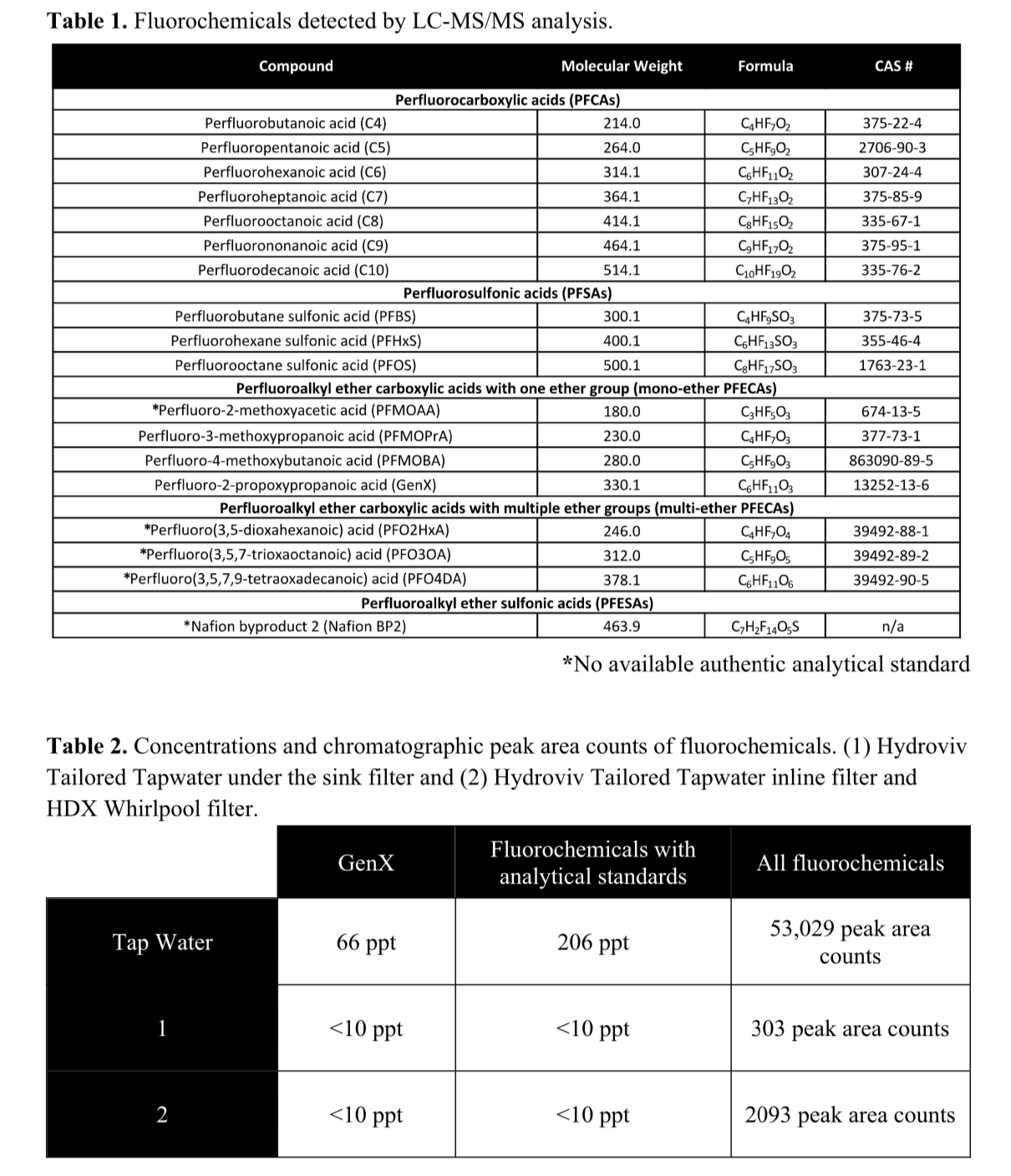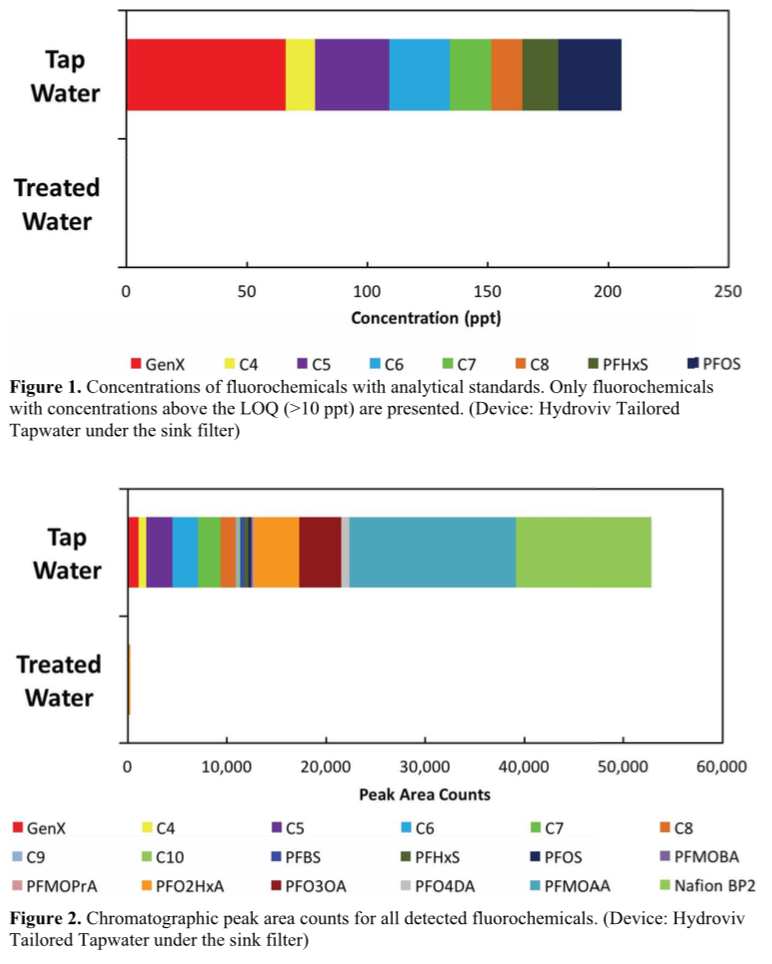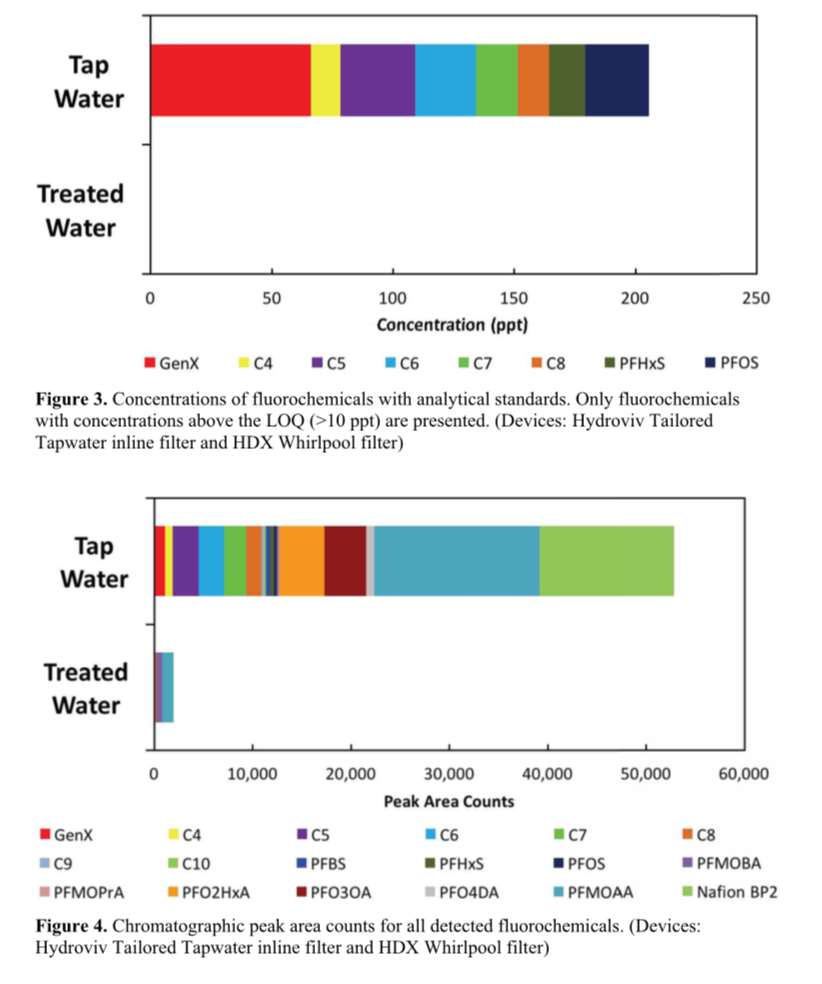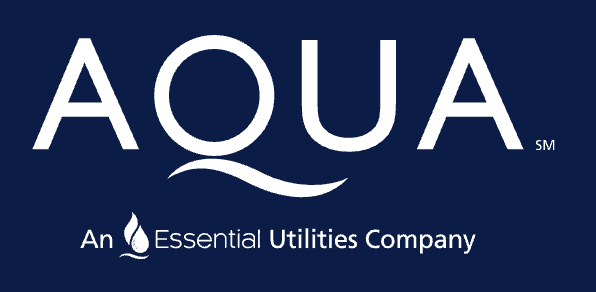PFAS Contaminated Tap Water
Let’s be clear, there is currently no proven safe disposal method for PFAS—yet industry and regulators continue to allow PFAS to be used with little to no oversight. So how do we immediately protect ourselves from exposures to these forever chemicals—especially in our tap water? Point of use filters are one way to stop exposures. These are typically filters installed under the sink. Unfortunately, point of use filters can be costly and not everyone can afford them.
Clean Cape Fear firmly believes the best way to end PFAS contamination is to stop it at the source. Communities, utilities, government agencies, scientists, and NGOs must all work together to hold PFAS source polluters accountable for their role in contaminating our air, soil, and water with these forever chemicals. Until then, here’s ways individuals can reduce their exposures to these forever chemicals in their tap water.
Southeastern NC Water Testing
PFAS contamination coming from Chemours’ Fayetteville Works location has impaired the drinking water supply for approx. 500,000 residents in the Lower Cape Fear region who rely on the Cape Fear River as their primary source of drinking water. To our knowledge Cape Fear Public Utility Authority (CFPUA) and Brunswick County Public Utilities (BCPU) are the only local water districts voluntarily testing for PFAS in tap their tap water. To see the most current results click the links below.
New Hanover County
Cape Fear Public Utility Authority
Cape Fear Public Utility Authority (CFPUA) operates three water treatment plants to service residents in New Hanover county. Tap water provided from the Sweeney treatment plant is contaminated with PFAS sourced from the Cape Fear River. To see their service map and current levels of PFAS in the tap water use the links below.
Aqua NC
Aqua NC serves parts of New Hanover County as a private utility. To figure out if you get your tap water from Aqua NC, check the top of your monthly water bill to see which company is billing you. To figure out if you have PFAS in your tap water from Aqua NC, click the link below to search the company’s water quality report database.
Brunswick County
Brunswick County Public Utilities
Brunswick County Public Utilities (BCPU) operates two water treatment plants that services residents in Brunswick County. Tap water provided from the Northwest treatment plant is contaminated with PFAS sourced from the Cape Fear River; however, Brunswick County blends water from both treatment plants so PFAS are present in the tap water for all customers and wholesale customers. Per Brunswick County’s website:
“As of June 2022, Brunswick County’s current wholesale customers include Bald Head Island, Holden Beach, Brunswick Regional Water and Sewer (H2Go), Oak Island, Ocean Isle Beach, Shallotte, and Southport.”
H2GO (servicing portions of Leland, NC)
In 2023, Brunswick Regional Water and Sewer (H2GO) removed itself as a wholesale customer of BCPU and opened its own Reverse Osmosis Water Treatment Plant (WTP) located in Leland, NC. Tap water provided by H2GO is sourced from a deep aquifer which is contaminate free. H2GO serves the Town of Belville and portions of the Town of Leland.
H2GO PFAS Test Results (June 2023)
Pender County
Pender County Utilities
Pender County Utilities (PCU) manages six water and sewer districts. The Pender County Surface Water Treatment Plant, which uses the Cape Fear River as its primary source of drinking water, is the main supply of potable water for the county. PCU tests regularly for PFAS but does not make those test results publicly accessible. PFAS test results are available by reviewing the most current water quality report.
Aqua NC
Aqua NC serves parts of Pender County as a private utility. To figure out if you get your tap water from Aqua NC, check the top of your monthly water bill to see which company is billing you. To figure out if you have PFAS in your tap water from Aqua NC, click the link below to search the company’s water quality report database.
Private Well Owners
Chemours Groundwater Sampling Program
Per a 2019 consent order, Chemours is required to test private wells for groundwater contamination around their Fayetteville Works facility. If a well qualifies, Chemours is required to provide free emergency water, followed by a more long-term solution. For more information on this program, click the county you live in:
Bladen, Cumberland, Robeson, and Sampson counties
Brunswick, Columbus, New Hanover, and Pender counties
Statewide PFAS Groundwater Testing Resources
Private well owners are responsible for conducting tests and ensuring their tap water is safe to consume. North Carolina’s Dept. of Health and Human Services created a testing and filtration guide for private well owners to find commercial labs who do PFAS testing and which filter brands have been proven effective at removing PFAS found in North Carolina.
Filtration Technology
We learned the hard way, the type of filtration technology matters when trying to remove all PFAS from tap water in the lower Cape Fear regio. While the chemical industry has “voluntarily” phased out the most notorious PFAS compounds, like PFOA and PFOS, from commercial use in the United States they are replacing these compounds with shorter-chain PFAS like GenX. GenX may bioaccumulate less in the human blood than PFOA but GenX and other short chain PFAS appear harder to filter from tap water than PFOA. Which means, the type of filtration used to remove PFAS currently in commercial use matters.
SIDE NOTE: We believe the chemical industry and regulators should use the precautionary principle regarding PFAS. When there is a lack of reliable scientific data on the health risks associated with PFAS than the chemical should be treated as toxic until its safety can be proven with scientific certainty. The burden of proof should fall on the chemical industry—NOT the American public. Unfortunately for decades federal agencies like the FDA, Dept. of Defense, and EPA failed to hold PFAS manufacturers accountable and failed to protect communities like ours from exposures to these forever chemicals.
Which Filtration Technology Works Best?
NC State and Duke University researchers have been studying the effectiveness of activated carbon and reverse osmosis filtration as viable technologies to remove the kinds of PFAS we are seeing in North Carolina tap water. Click the below links to review current research:
Duke University: PFAS & Water Filtering Fact Sheet
NC State University: PFAS Filter Infographic
2020 Herbert, et al study: Assessing the Effectiveness of Point-of-Use Residential Drinking Water Filters for Perfluoroalkyl Substances (PFASs)
Whole House vs. Under Sink Filters
Source: StarNews, October 13, 2017 “Filtering out the best home water systems for GenX”
One of the most common questions we get asked: Should I install a whole house filter to remove PFAS from entering my home? This is commonly referred to as “point of entry” filtration. In 2017, we reached out to Dr. Detlef Knappe with NC State University. Dr. Knappe stated under sink RO filters, called “point of use” filtration, are adequate enough to filter out PFAS--assuming you are fortunate enough to afford this alternative water treatment option. Dr. Knappe reminded us that only 1% of household water use is for drinking and cooking. Filtering your entire house includes filtering water usage for laundry, bathing, dishwashing, toilet use, etc. Whole house RO filters are costly and may not be necessary since these filters treat the entire house--including high volume usage areas that may pose little health effects.
In recent years, scientific consensus has become less certain about dermal exposures to PFAS and there’s ongoing debate regarding the risks of showering and bathing with PFAS contaminated tap water. However, whole house filters pose other serious concerns—especially in warm climates where these filters are known to strip important disinfectants from your house’s internal plumbing.
Additionally, whole house RO filters waste a lot of water. The filtration ratio for reverse osmosis is 5:1, meaning for every five gallons of water you filter, only one gallon can be used. That's a lot of wastewater and one super expensive water bill--think five times more expensive than normal.
Buyer Beware: Whole House Filters May Require Caution
During the 3rd National PFAS Conference hosted in Wilmington, NC in June 2022, Dr. Knappe presented research conducted by NC State and Duke University scientists on the effectiveness of various filtration technologies and filter types on removing PFAS from tap water. Click the links below to view the entire presentation.
Filtration Studies
We also understand highly contaminated communities cannot afford continued exposure to PFAS chemicals while regulators and government agencies work to remove source pollution—which can sometimes take years. That’s why we created this repository of under-sink filter studies conducted by Dr. Detlef Knappe’s lab. Clean Cape Fear does not endorse any of these filters. We simply want communities to have access to the best possible information.
***Due to the nature and uniqueness of the PFAS chemicals detected in the lower Cape Fear River basin we are only publishing filter studies conducted by Dr. Knappe’s lab at NC State.***
*** If you are an under-sink filter company and your product was independently tested by Dr. Knappe’s lab, please click here to send us your lab results and we will update this page with your report.***
Under-sink Filter Study:
The information below was first presented at Clean Cape Fear’s third and final Water Wednesday public forum.
Click here to view additional scientific presentations from this event.
Through Dr. Detelf Knappe's research on filtration methods, we learned that under-the-sink reverse osmosis (RO) filters did the best job of removing GenX and other PFASs in our finished tap water. Granular Active Carbon (GAC) did not seem effective at all in removing any of the PFAS.
Below are slides from Dr. Knappe's research in 2017 showing how five different under-the-sink filtration methods performed at removing all these PFASs in our tap water.
Note: The top graph shows GenX and those chemicals that have KNOWN analytical testing standards. The bottom graph shows ALL the PFASs found in our tap water--including C3 (PFMOAA). Notice the tiny red bar in the bottom graph, that is GenX. This should put into perspective why it is extremely important we focus on more than just GenX, we need to focus on every PFASs in our tap water.
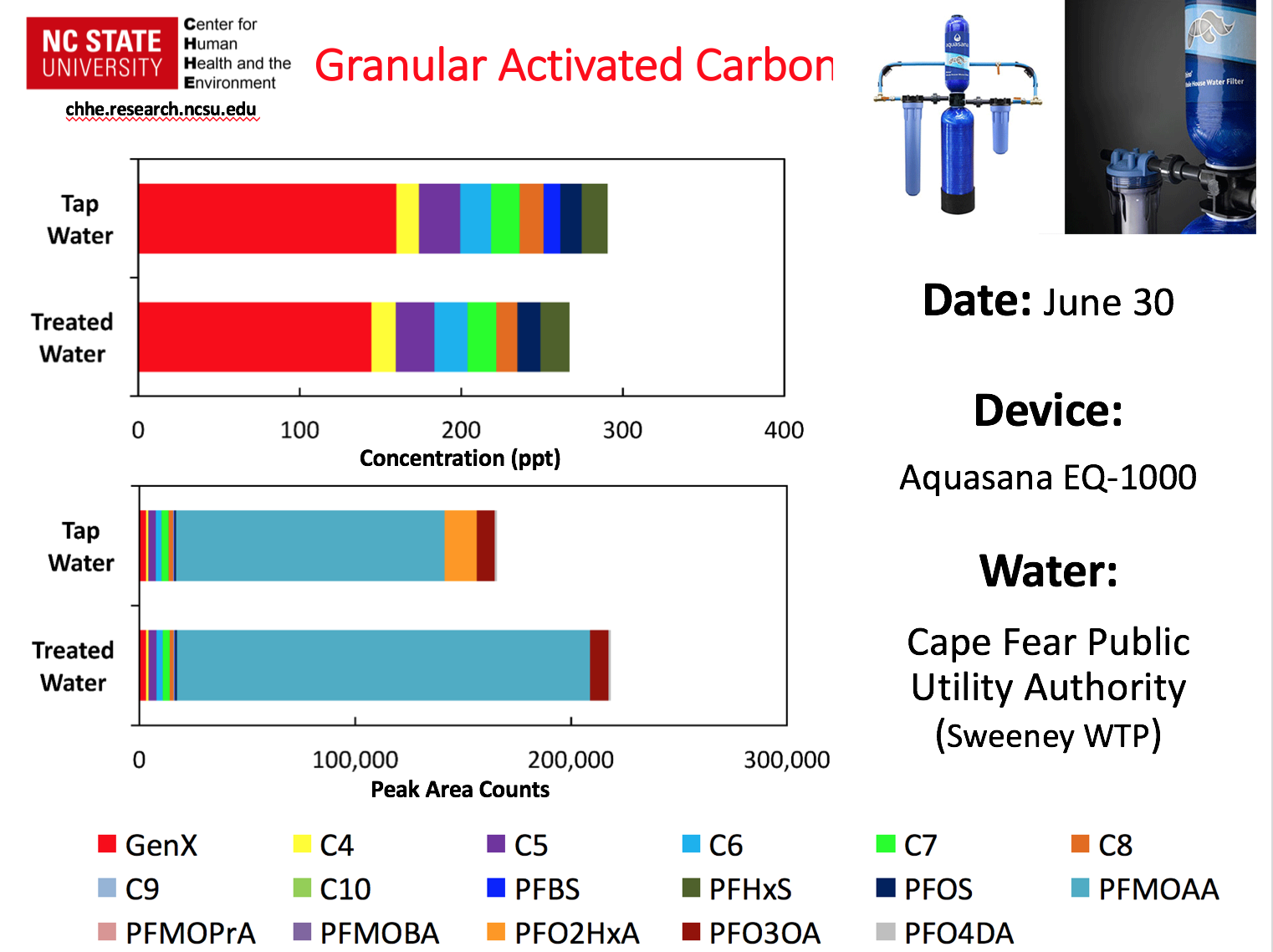
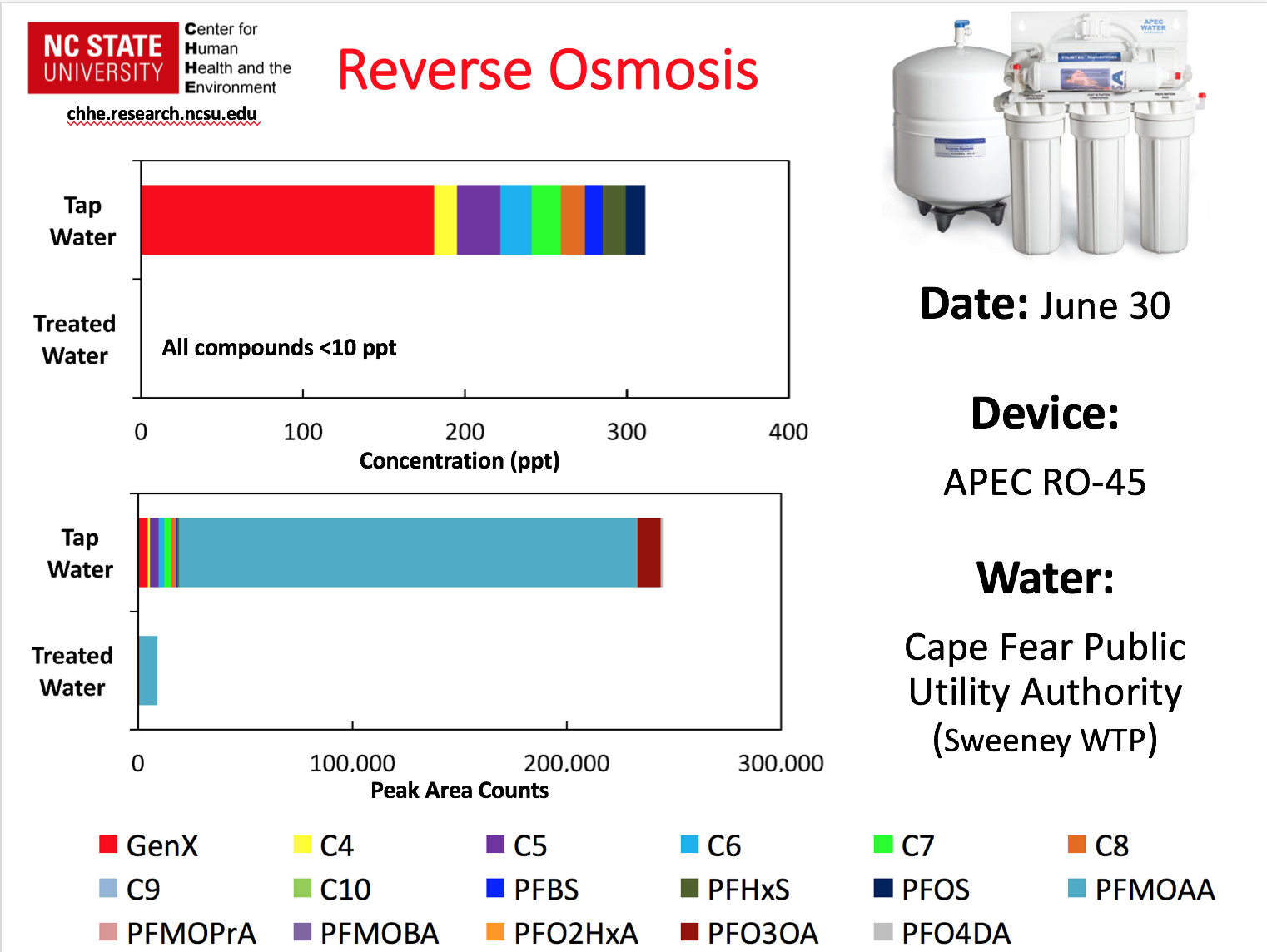
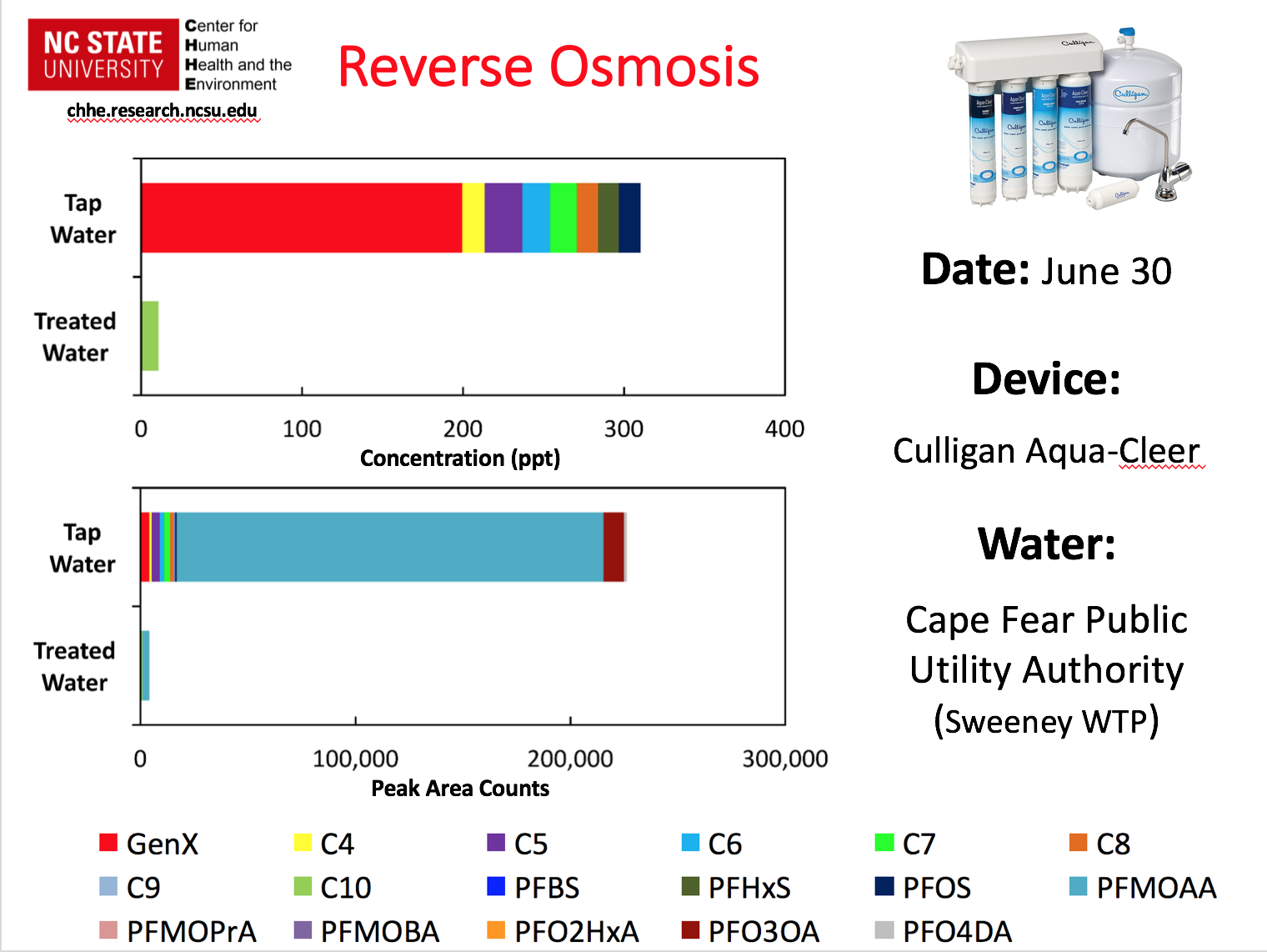
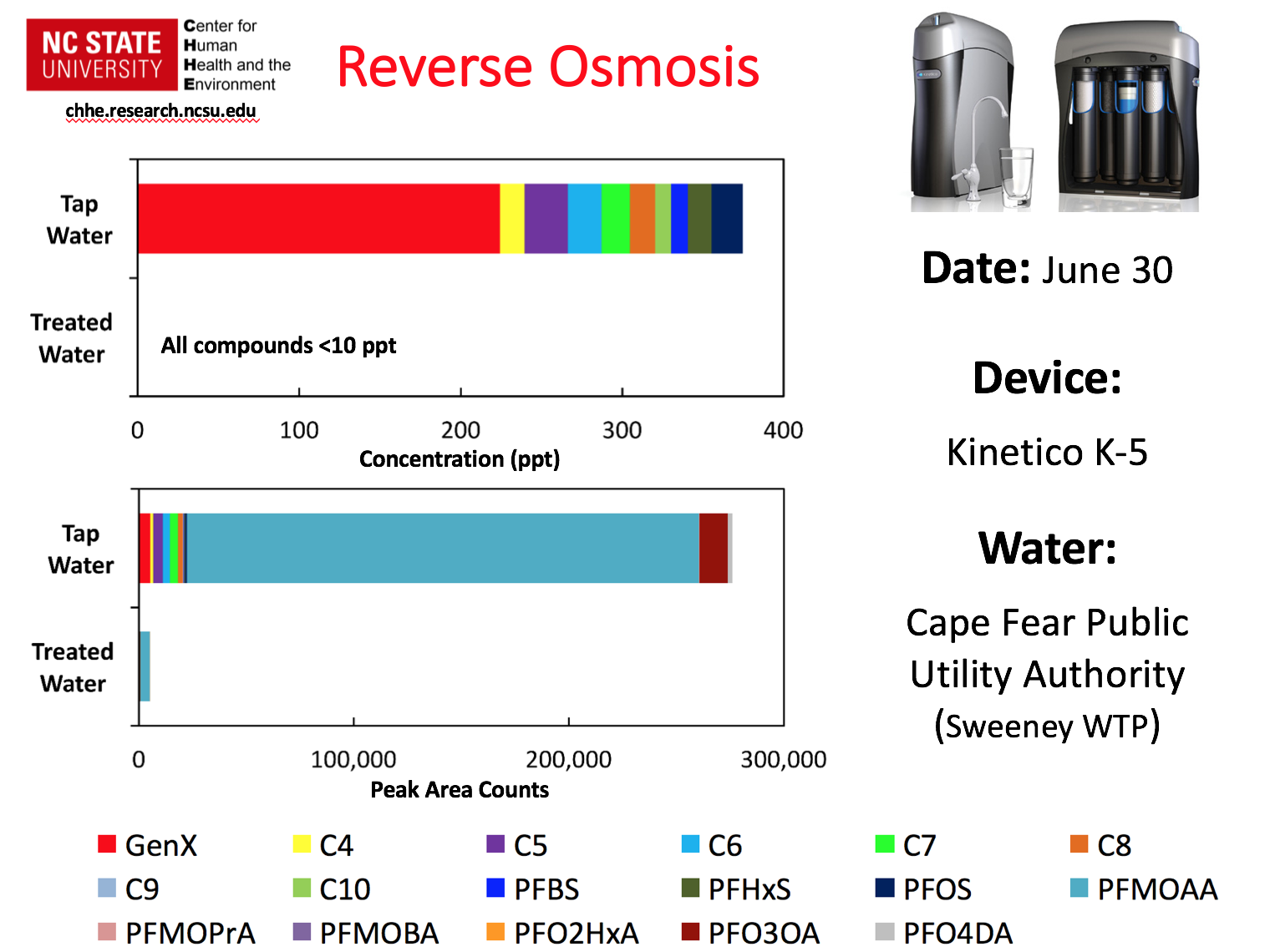
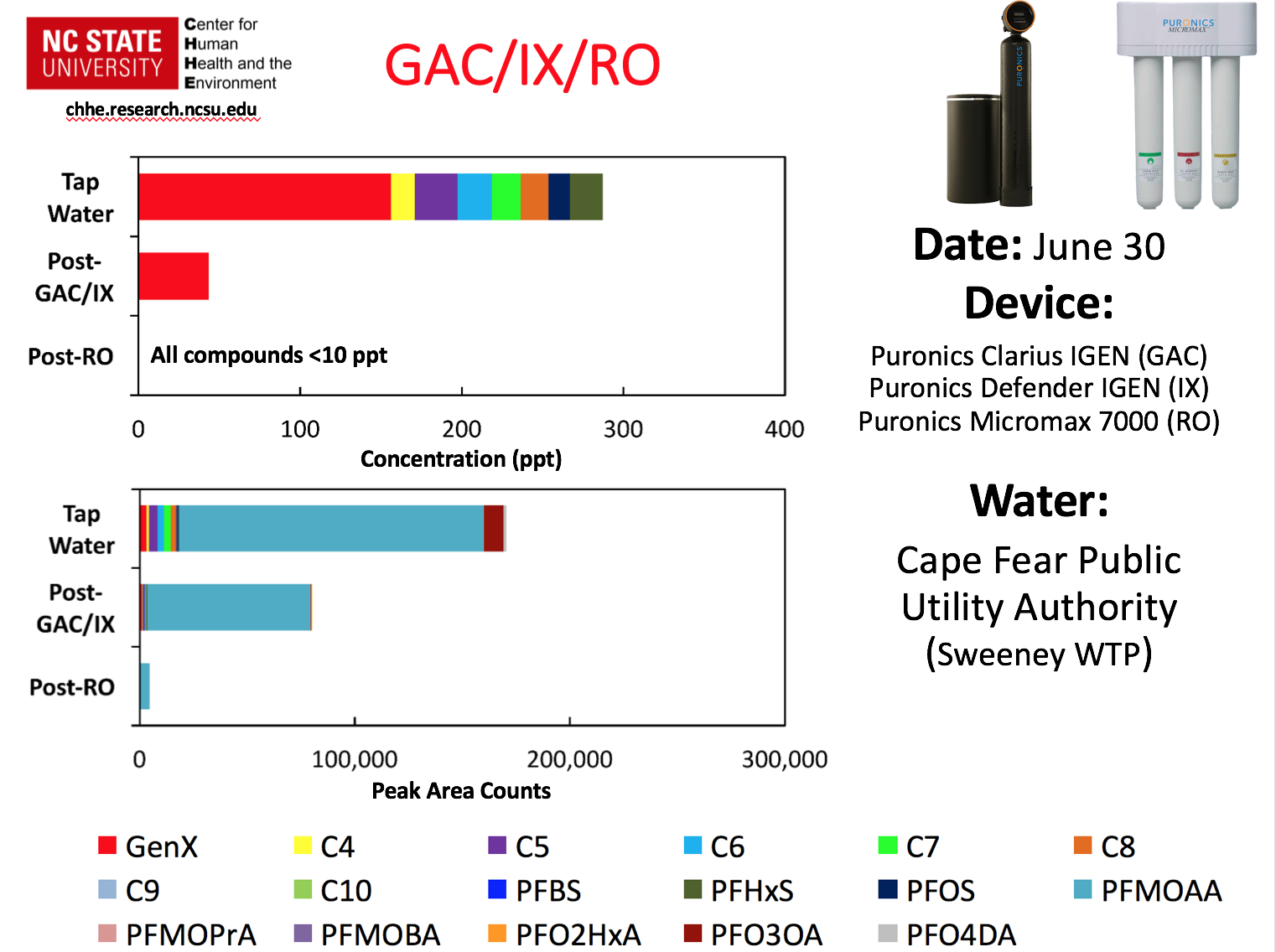
***The below are additional notes from our third Water Wednesday public forum in 2017.***
Dr. Knappe stated under sink RO filters are adequate enough to filter out the PFAS--assuming you are fortunate enough to afford this alternative water treatment option. Whole house RO filters are costly and not necessary since these filters treat the entire house including showers, toilets, etc.--all high volume usage areas that currently pose little health effects. Dr. Knappe reminded us that only 1% of household water use is for drinking and cooking.
Additionally, whole house RO filters waste a lot of water. The filtration ratio for reverse osmosis is 5:1, meaning for every five gallons of water you filter, only one gallon can be used. That's a lot of wastewater and one super expensive water bill--think five times more expensive than normal.
Dr. Knappe encouraged more focus on PFMOAA, also known as C3. Little is known about C3, yet it was detected at levels 50 - 100 times GREATER than GenX. There are zero analytical standards for C3--which means, even less is known about their health effects on humans. It is for this reason, Dr. Knappe cautions drinking the tap water--even at the new DHHS 'health goal' of 140 ppt.
Other Studies:
A Wilmington resident commissioned a separate home filtration study by NC State. Click here to see the full report.
